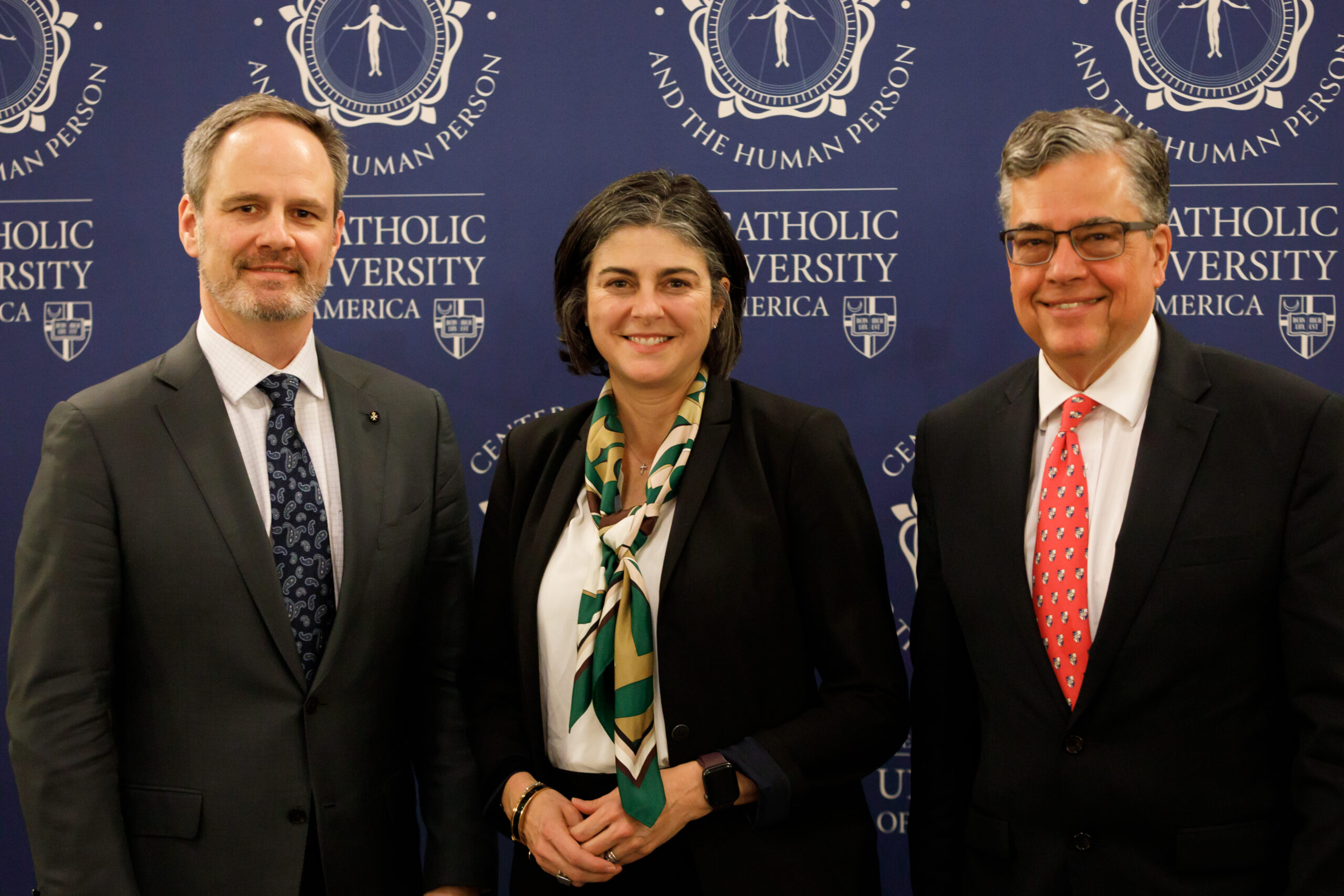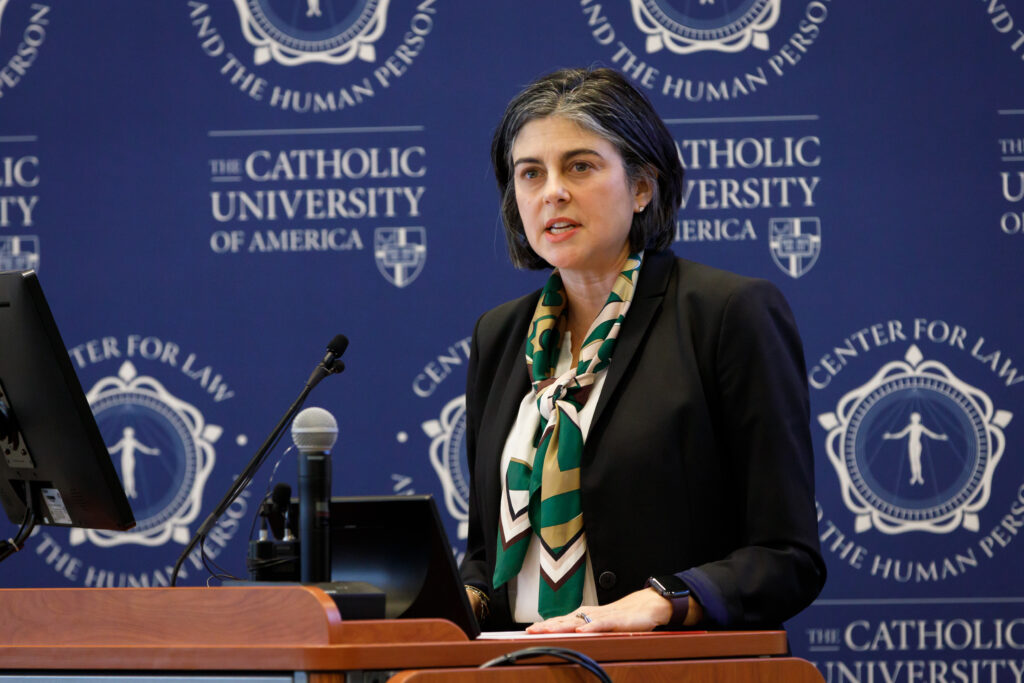
On Tuesday, March 14, 2023, the Center for Law and the Human Person (CLHP) at The Catholic University of America Columbus School of Law (Catholic Law) hosted its inaugural conference entitled, “Rightly Order Law and the Flourishing of the Human Person.” The conference opened with remarks by Stephen C. Payne, Catholic Law’s Dean and Knights of Columbus Professor of Law, followed by an introduction by CLHP Director, Elizabeth Kirk. Introducing the general theme of the conference, Kirk emphasized the role that law can and should play in orienting the human person toward virtue and fulfilling his given end. Kirk also cited Pope Saint John Paul II in observing that law must respect and protect human dignity or it risks subjecting persons to manipulation and violation.
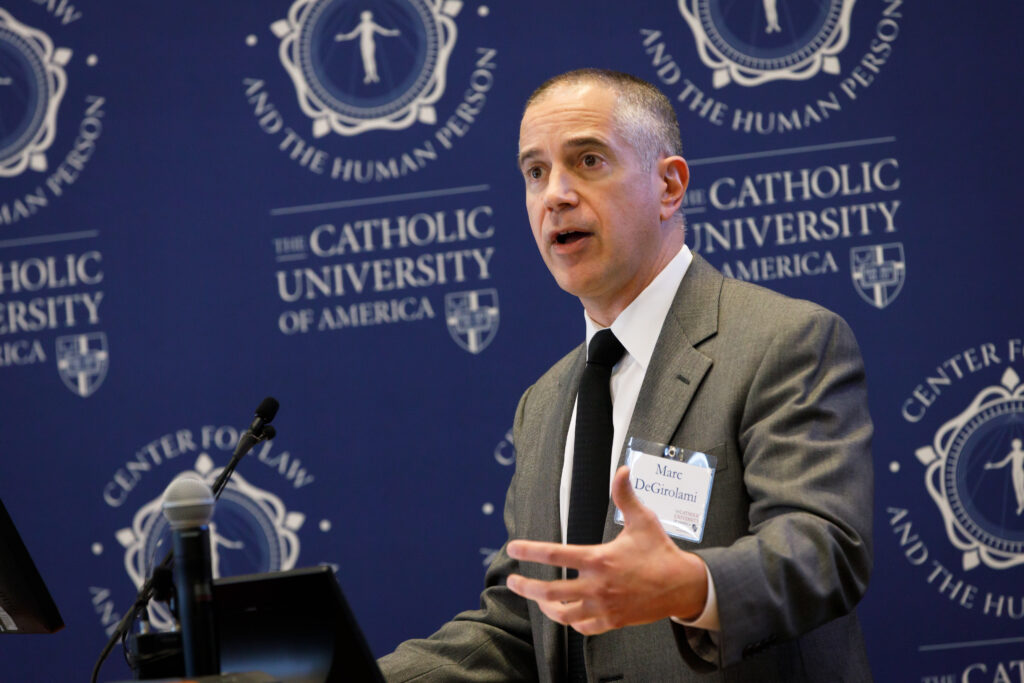
Marc O. DeGirolami, Cary Fields Professor of Law, St. John’s University School of Law, provided the conference’s first presentation, “Notes on a New Humanism in Legal Education.” Reflecting on his experience as a law professor, DeGirolami argued that law schools should offer their students opportunities to study humanistic studies such as philosophy and theology. “About five years ago, I began to notice something in my students,” he remarked. “They have their intuitions. They know, or think they know, what they think, but they keep quiet because they don’t know how to approach disagreement.” Humanism and the study of law can and should co-exist, he explained. Law should facilitate human flourishing, and the humanities advance that goal by providing law students with opportunities for shaping themselves and becoming more fully human. DeGirolami posited that legal education could better challenge its students by using the humanities to prompt further exploration of human nature.
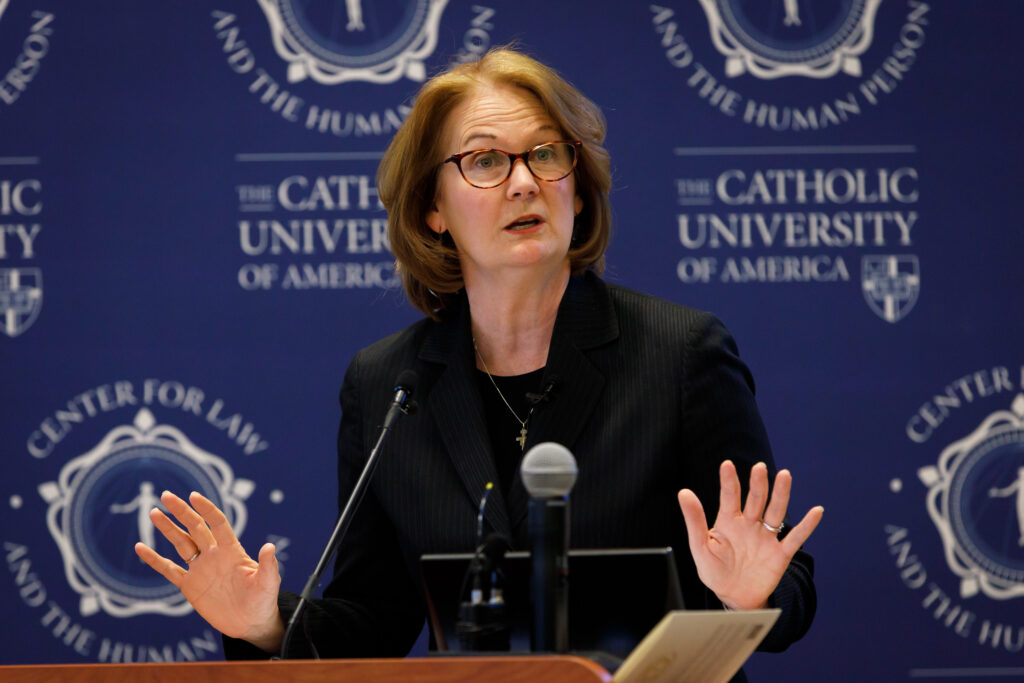
Following DeGirolami, Mary Graw Leary, Senior Associate Dean for Academic Affairs, Catholic Law, contrasted the way in which law teaches human dignity with one way in which law has failed to protect that dignity. Graw Leary’s lecture was entitled, “It’s Expensive to End Slavery: The Need for Forced Labor Laws to Reflect the Value of Human Life.” She addressed the continued exploitation of children through forced labor throughout the world, declaring, “We are in the midst of a social movement—and in my opinion, we are losing it.” She observed that a social movement often achieves its specific goal when it successfully does three things: educates the public on the harm of the target vice, enacts law in furtherance of the movement, and develops a stigma attached to engaging in the target vice. Graw Leary offered as one example of a successful movement the campaign against drunk driving, which evolved from a common occurrence to a disgraceful taboo. She then identified the failure of child labor opponents to adequately develop a stigma against exploitatively placing vulnerable children in brutal jobs. “We are at an inflection point,” Graw Leary remarked. “History will view this period as either a raising up of human dignity, or a continuance of child labor exploitation.”
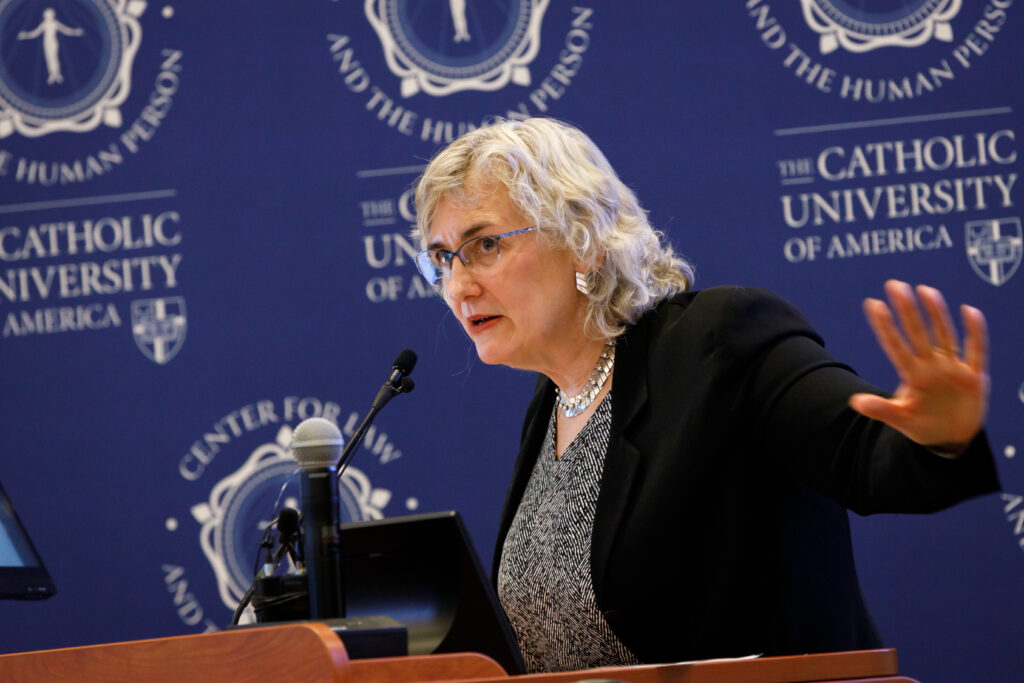
Expanding on Graw Leary’s exposition of a stigma’s power, lecturer Elizabeth Schiltz, Herrick Professor of Law, University of St. Thomas (St. Paul, MN), focused on “The Discordant Notions of Human Dignity Undermining the Aspirations of Disability Law.” Schiltz explored the educative function of law, in which law shapes the conduct of individuals and society, in the context of the Americans with Disabilities Act (ADA). Schiltz described the dissonance between the anthropological foundation of the protective measures promulgated by the ADA and the visible reality of those affected by the ADA. The notion of human dignity underlying the ADA assumes that such dignity derives from autonomy and the related capacity to reason and choose independently. A sizeable number of people with disabilities, however, suffer from infirmities that impair their capacity for autonomy and reasoned decision-making. As result, Schiltz concluded, protections of persons with disabilities should seek not necessarily to empower autonomy but to assist those persons in their current and real contexts. Those protections should recognize that one’s dignity does not arise only from autonomy and individuality but also from recognizing one’s vulnerability and dependence on others and God.
As the afternoon lectures concluded, the evening festivities began with a Mass celebrated in Catholic University’s St. Vincent de Paul Chapel by University Chaplain Fr. Aquinas Guilbeau, O.P. In his homily, Fr. Guilbeau reminded participants that rightly ordered law requires lawmakers who are rightly ordered persons, who in turn must rely on grace to aid their continued commitment to the good. Following the Mass, a banquet was held in Catholic Law’s Louise H. Keelty and James Keelty, Jr. Atrium, with Dr. Peter K. Kilpatrick, President of The Catholic University of America, in attendance.
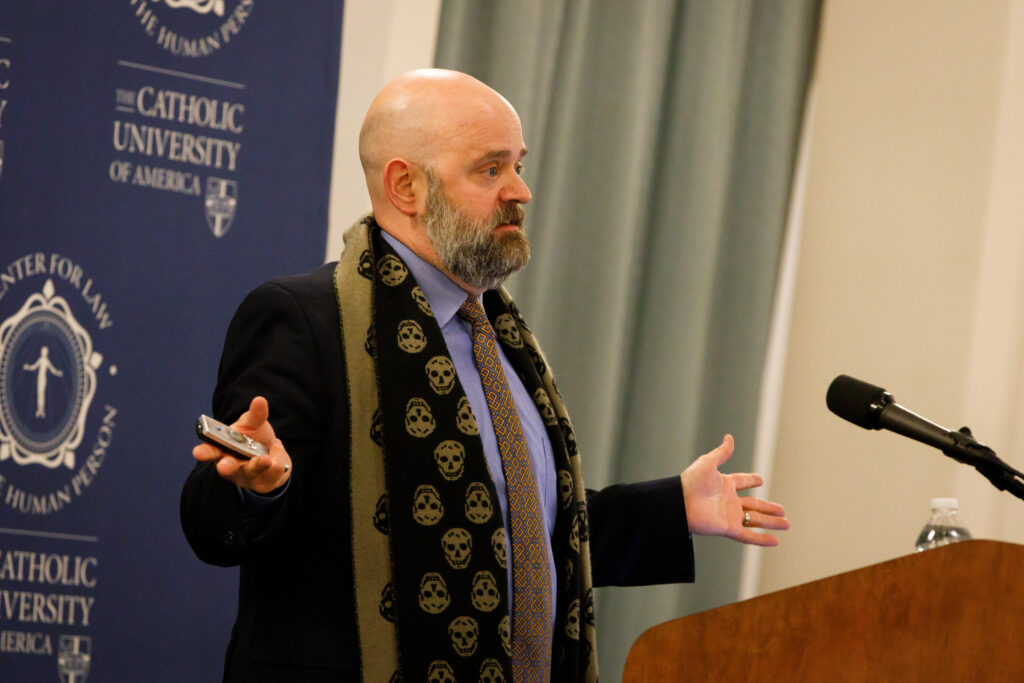
Following dinner, Kilpatrick introduced keynote speaker Carter Snead, Director of the de Nicola Center for Ethics and Culture and Professor of Law at the University of Notre Dame. “The most important thing we do at a Catholic university is help human persons learn who they are,” Kilpatrick remarked. Snead then delivered a lecture entitled, “Anthropology: The Indispensable Tool for Grasping and Shaping Law.” Snead criticized the “vision of human flourishing [that] anchors and animates [much] law and policy” as based on expressive individualism—an anthropological framework that seeks to establish conditions for human flourishing that in reality aid the most privileged. He suggested a corrective anthropology based on mutual dependence and vulnerability, through which human persons may recognize their ultimate purpose as creatures drawn toward love and friendship.
Director Kirk concluded the conference by explaining the elements of the Center’s new logo, depicting the human person as imago Dei and guided by the light of law. Kirk also thanked the many individuals who had contributed to the success of the inaugural conference.
Click here to view a recording of the event.

